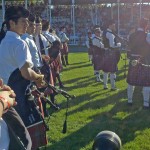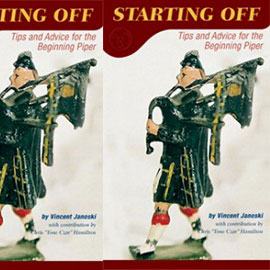Taking Grade 3 Pipe Band Instructors to the Next Level?
 The recent string of Facebook comments on the EUSPBA Facebook page regarding playing instructors in pipe bands is worth a read.
The recent string of Facebook comments on the EUSPBA Facebook page regarding playing instructors in pipe bands is worth a read.
http://www.facebook.com/permalink.php?story_fbid=169265656422239&id=118775804844409&il=0
Obviously, it strikes a chord within our little eastern US piping and drumming community. Opinions abound, but if one were trying to find a rationale for the rule change that takes effect for the 2011 season, one will have to look elsewhere. It’s got me thinking though about cause and effect in success or failure in pipe bands, all of which is not entirely concrete as some comments suggest.
Judging from the reasoning one can read, it boils down to this, it seems: Playing instructors hold back, or handicap Grade 3 bands from long-term improvement and/or competition success and their fortunes will reverse if those playing instructors are removed from the competition circle.
It should be noted that if that line of thinking holds true then it holds true in grades 4 and 5 as well (yet playing instructors are still allowed there). To suggest that sudden 2011 competition success would be the natural result (and the measure of effectiveness) of eliminating a playing instructor is dubious at best. To suggest that the strong results some of our current and past grade 3 bands have enjoyed outside the association is due (in whole or in part) to the fact that they do not have a playing instructor is equally dubious. Some facts:
- 8 out of 25 (1/3) of EUSPBA grade 3 bands have piping instructors. (Hardly a proportion that would suggest a pattern one way or the other.)
- Of those instructors, there is a universal Gr. 1 representation from the US, N.Ireland, Australia, and Canada.
How is allowing that kind of representation in the competition circle holding any of these bands back? If any of them are out of the top of the list in EUSPBA or non-EUSPBA contests now, I submit that it is the case for a host of factors unrelated to whether an instructor plays with them on the field. And it will remain so until those factors are addressed and in all likelihood will require the services of an instructor (who should play or not as decided by the bands in question themselves) to sort out.
Pipe bands should be free to use as many tools and resources as they can to forge their own path forward. Artificially holding back resources for the sake of “improvement” or “success” will only hold back the bands in question. It is illogical to claim the opposite.
Let’s take this type of thinking to the next level, shall we?
It is obvious that solo players should learn the basics of bagpipe sound. Playing synthetic drone reeds is handicapping players and keeping them from learning what the bagpipe needs to sound like. By this reasoning, the rules governing competitions should be changed to require players in solo competition grades 3 and up to play only cane drone reeds. Synthetic reeds should be disallowed in solo competition. An even and fair playing field is then created and everyone will improve their sound building skills and see success, right?
A pipe band instructor is not unlike a drone reed, a tuner, moisture control setup, or any other tool the band might employ in their strategy to build the greatest success and improvement they can. That tool is as useful as the band makes it. One day, said band might outgrow the need for such a tool, but until then they should decide for themselves how best to use it.
 Pipehacker
Pipehacker









Pingback: More Thoughts on Pipe Band Instructors :()
Pingback: Can Good Bagpiping Come in a Can? :()